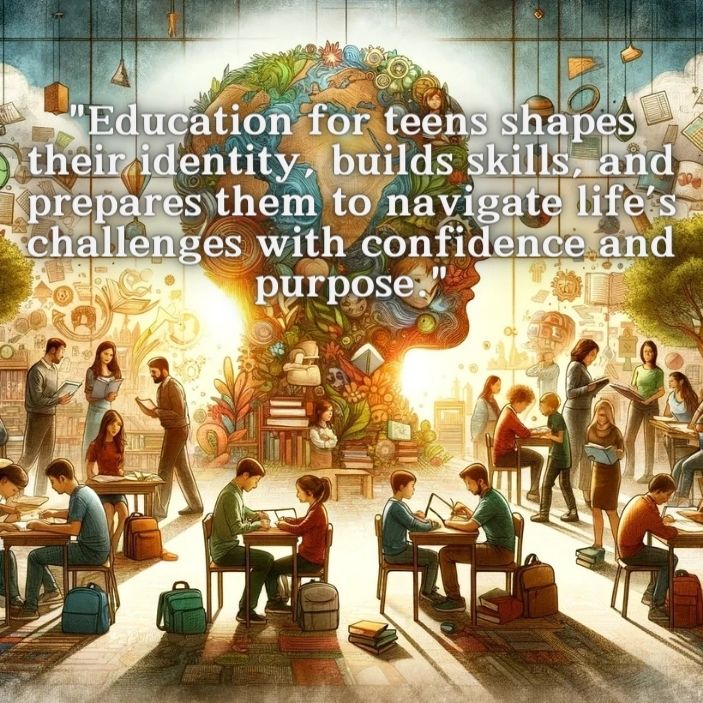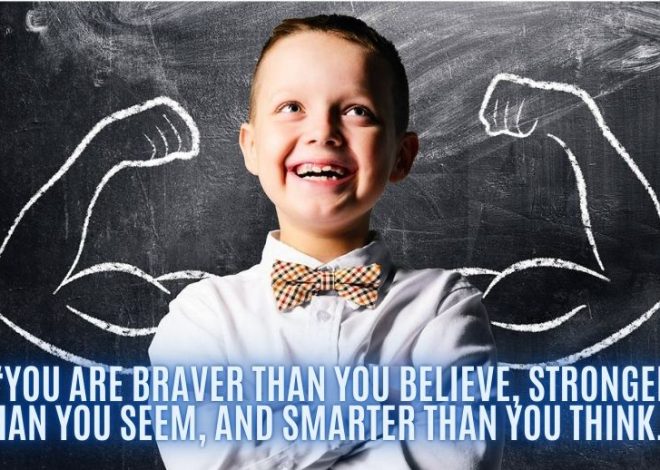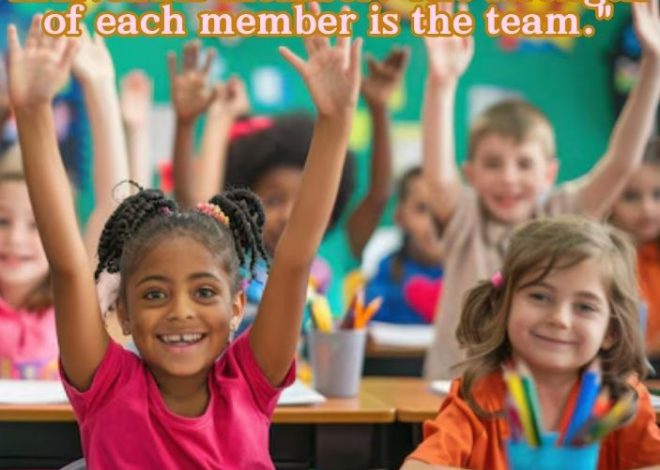
“Shaping the Future: The Vital Role of Education for Teens Aged 13 to 18”
The years between 13 and 18 are a period of profound change and growth for adolescents. These are the crucial years when children transition into young adulthood, a stage of life marked by physical, emotional, cognitive, and social transformation. During this time, education plays an indispensable role—not just in imparting academic knowledge, but in shaping the individual as a whole. It helps adolescents form their identity, develop essential life skills, and prepare for the future. Understanding the impact of education during this critical developmental period is essential for fostering environments that nurture well-rounded, confident, and capable young people.
Cognitive Development and Academic Learning
The cognitive development of adolescents accelerates during the teenage years. Between the ages of 13 and 18, the brain undergoes significant restructuring, particularly in areas related to reasoning, problem-solving, and decision-making. This is also when teens develop the ability to think more abstractly and critically, which makes education an essential tool for stimulating intellectual growth.
In school, teenagers are exposed to more complex and challenging subjects that push the limits of their cognitive abilities. The subjects they encounter—whether in mathematics, literature, science, or history—help refine their analytical thinking, enhance their problem-solving skills, and encourage them to view the world from multiple perspectives. Additionally, education nurtures curiosity, encouraging teens to ask questions and seek out answers, laying the groundwork for lifelong learning.
The school environment also offers structured opportunities for academic success. Good educators provide the support and encouragement needed for teens to reach their academic potential. This helps them build confidence in their intellectual abilities and sets the foundation for future academic and professional pursuits. In turn, academic success provides a sense of achievement and boosts self-esteem, which is crucial during adolescence, when self-worth can be fragile.
Social and Emotional Development
Adolescence is a time when teens are learning to navigate complex social dynamics, manage their emotions, and form a sense of their own identity. Education plays a central role in this aspect of development by providing a structured social environment where teens interact with peers and authority figures.
In the school setting, teens develop vital social skills such as communication, collaboration, and conflict resolution. Group projects, extracurricular activities, and even day-to-day interactions with classmates teach teens how to work together, share ideas, and resolve disagreements. These social skills are not only important for academic success but are also critical for future relationships, both personal and professional.
Moreover, school provides a sense of belonging, which is particularly important during adolescence. Many teens experience feelings of isolation or confusion as they try to understand who they are. Educational institutions offer a community where teens can form friendships, explore different social roles, and test boundaries in a relatively safe and structured environment. The sense of belonging that school provides can be pivotal in helping teens develop self-confidence and a positive sense of self-identity.
Beyond peer relationships, education also introduces teens to adult role models—teachers, mentors, counselors—who can offer guidance, wisdom, and support. These relationships help teens understand their emotions and the broader world around them, helping them navigate the ups and downs of adolescence with greater resilience and emotional intelligence.
Developing Life Skills and Values
Education during the teenage years is not limited to academics; it also plays a key role in shaping teens’ character, values, and life skills. As they mature, teens are confronted with more complex moral and ethical questions, and the lessons they learn in school can help them form their personal value systems.
Many educational settings provide structured opportunities to teach values such as responsibility, discipline, respect, and integrity. Through classroom rules, extracurricular activities, and school projects, teens learn the importance of hard work, time management, and accountability. These life skills will serve them well in adulthood, where they will be expected to make independent decisions, manage their time effectively, and balance personal and professional responsibilities.
Additionally, schools often offer programs that focus on citizenship, community service, and social responsibility, helping teens understand their role in society and the importance of contributing to the common good. As teens engage in community service or take part in discussions about social issues, they begin to develop a broader perspective on the world, which encourages empathy, tolerance, and global awareness.
Building Future Pathways: Career and Life Choices
One of the most important roles of education during the 13 to 18 years is to prepare teens for their future careers and life choices. As adolescents mature, they begin to consider their interests, talents, and career aspirations. High school education, particularly during the latter years, provides the tools and experiences that help them make informed decisions about their future.
For example, career exploration programs, internships, and vocational training opportunities allow teens to gain hands-on experience in different fields, helping them clarify their career goals. High school curriculums also offer specialized courses in areas such as business, technology, arts, and sciences, allowing teens to explore their interests and develop relevant skills. This process of self-discovery is crucial in helping teens choose a career path that aligns with their strengths and passions.
Moreover, education during these years helps teens develop essential life skills such as financial literacy, communication skills, and problem-solving techniques that are necessary for success in any career. Additionally, high school education often includes preparation for further education, whether through college, trade school, or apprenticeships, which is a critical next step in helping teens transition from adolescence to adulthood.
The Role of Teachers, Mentors, and Support Systems
The impact of education on teens is not solely dependent on the curriculum—it also heavily relies on the relationships teens have with their educators, mentors, and families. Positive relationships with teachers and mentors can have a transformative effect on teens. These adults often serve as role models, offering encouragement, advice, and emotional support. In times of personal struggle or academic difficulty, having a trusted adult to turn to can make all the difference in a teen’s development.
In addition to educators, support systems such as family, friends, and school counselors play a vital role in helping teens navigate the challenges they face during adolescence. Parents and guardians, for example, can provide emotional stability and guidance, while peers can offer social support and a sense of camaraderie. School counselors help teens manage stress, explore career options, and make academic decisions that align with their future goals.
Conclusion
The years between 13 and 18 are undoubtedly some of the most pivotal in an individual’s life. Education during this time serves as a cornerstone for both personal and academic growth. It helps shape teens into well-rounded individuals who are prepared to face the complexities of the adult world. From cognitive development to emotional growth, from the acquisition of academic knowledge to the development of life skills, education plays a vital role in guiding adolescents through their formative years. By understanding the impact of education during these crucial years, we can better support and guide young people in reaching their full potential. Education is not just about preparing teens for exams; it is about equipping them with the tools to succeed in life, build meaningful relationships, contribute to society, and realize their dreams.














